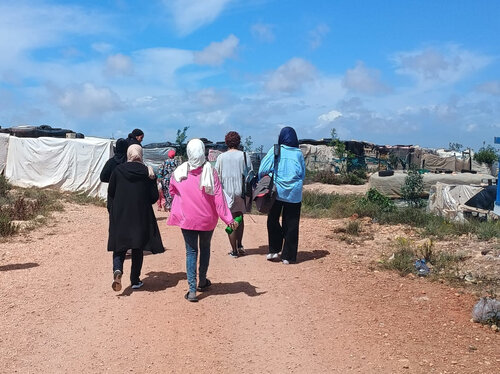A study warns of the vulnerability to sex trafficking of Moroccan women hired to work in the Spanish countryside.
The research documents the exploitation and consequences for the physical and mental health of migrant women who become trapped in networks of abuse
A recent academic study reveals how Moroccan women who come to Spain to work in agriculture end up trapped in situations of sex trafficking and exploitation. The research, published in the scientific journal Women's Studies International Forum, highlights the vulnerable conditions these women face and offers recommendations to improve their protection and reception.
The research team, made up of staff from the University of Almería, the University of Lleida and the Lleida Biomedical Research Institute (IRBLleida), interviewed 26 Moroccan women who came to Spain for temporary work in the agricultural sector and who have been victims of sex trafficking and exploitation. The study, carried out between 2023 and 2024 in rural settlements in Almería and Huelva, denounces the serious precarious conditions these women experience when they decide to stay in Spain illegally in an attempt to improve their living conditions and those of their families.
The results show how the promise of a legal employment contract leads many of these women to move temporarily, mainly to Andalusia, but in some cases also to agricultural areas of Catalonia such as the Lleida region. During this journey, some of them are exposed to situations of control, intimidation and sexual exploitation by co-workers and criminal networks. Practices such as restrictive control of mobility, emotional blackmail and lack of information about rights and resources are described.
"These women accumulate risk factors for social exclusion such as poverty, illiteracy, lack of knowledge of the language, social isolation and administrative irregularity. This leaves them even more vulnerable," warns Erica Briones Vozmediano, a researcher with the Health Care Research Group (GRECS) at IRBLleida, a professor at the University of Lleida and the coordinator of the project that this study is part of. The participants reported situations of sexual violence, labour exploitation, psychological pressure and unsustainable living conditions, often without any institutional or health support. The study denounces the fact that the legal framework and current migration policies not only fail to protect them, but may actually contribute to their vulnerability.
The results call on institutions to urgently implement preventive and protective strategies, as well as to review migration policies to safeguard the well-being of these women. The study is part of a project that will include the counties of Lleida, which have a high level of agricultural activity and a large number of seasonal workers, where the results of this study could be a key tool for strengthening public prevention and protection policies.
This research has been made possible thanks to funding from the Carlos III Health Institute (ISCIII) through the project 'Migration and Agricultural Work in Spain: Sociolaboral Precariousness and Health' (PI20/01310), co-financed by the European Union through the European Regional Development Fund/European Social Fund 'A way to make Europe'/'Investing in your future'.
Article: María del Mar Jiménez-Lasserrotte, María Kinza El Amrani Escot, Dulcenombre de María García-López, Karim El Marbouhe El Faqyr, José Granero-Molina, Erica Briones-Vozmediano, From precariousness to prostitution: Experiences of Moroccan migrant women with trafficking and sexual exploitation in agricultural settings, Women's Studies International Forum, Volume 112, 2025, 103162, ISSN 0277-5395, https://doi.org/10.1016/j.wsif.2025.103162.

Image of a settlement where contact was made with the women participating in the study






